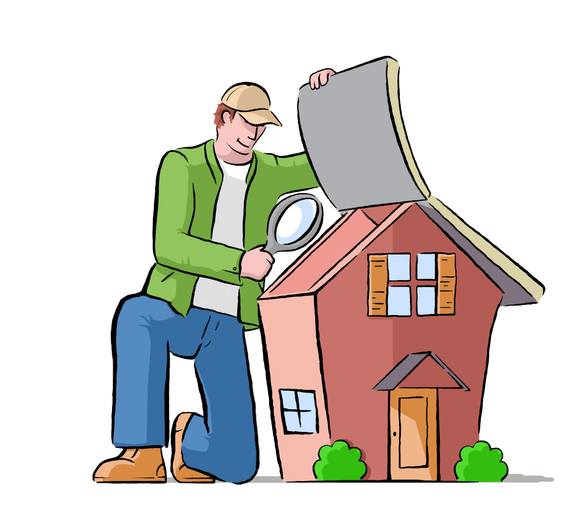You've found your dream home in the perfect neighborhood. The neighbors are friendly, as are their kids and dogs, the schools are nearby and the price is even below what you were expecting. You can practically picture the fireplace mantel inside covered with family photos and smell the apple pie baking in the state-of-the-art kitchen. But wait, you have one more major hurdle before this slice of Norman Rockwell becomes reality: the home inspection, for which the Latin saying "Caveat emptor (let the buyer beware)" was invented.
"Every house has its surprises," says Mike Vento, a professional home inspector.
Common "surprises" inspections uncover include: poor exterior grading, which can lead to basement flooding or leaking; roof leaks; improper wiring; plumbing issues; and heating system malfunctions.
But there can also be some more... exotic surprises, as well.
Vento was examining the basement of an expensive home on the East Coast, in a very desirable suburb. The buyer and the buyer's agent trailed him for much of the job, until...
A mother snake slithered out from around the well followed by a baby snake. Then I noticed lots of snake skins hanging in the rafters. The buyer almost fainted. Sweat started beading on the agent's brow.
Needless to say, once the dream home became a figurative nightmare, the deal fell through.
Critters figure prominently in the stories of home inspectors. Gary Peterson, a home inspector who used to work in Northern California, tells of the time he was leading a group of nearly 20 people through an inspection in another pricey home, located in a heavily-wooded enclave outside Big Sur. "As they watched, I took off the main electrical panel in the back of the house," Peterson remembers. "Out of nowhere, a big raccoon popped out and scampered by. All of a sudden, I was all alone."
The seemingly every day problems can often prove to be the biggest disasters -- and deal-breakers.
"I often open up the electrical panel and find a box-full of rust," Vento says. "Water seeps in from the outside meter along the cables. It can damage circuit breakers, terminals and cause shorts, and cause a fire."
Rust may not be the only thing lurking back there. "Mice nest there and use it as a latrine. I sometimes find them fried after they gnaw through the wires."
Most of the issues inspectors encounter are relatively simple and can be easily dealt with. But sometimes the cost of fixing these small things can be major. One way the potential buyer can protect him or herself is to make sure, when making an offer on a house, the contract includes a home inspection contingency. This is to ensure, if a costly problem is found, you can require the seller make the repair before the deal closes, negotiate a price reduction to make up for the cost of making the repair yourself, or go look at some different houses altogether.
Vento emphasizes that "Buyers have to be prepared to walk away from a deal, even if they've fallen in love with the property if the numbers don't add up and they can't get concessions from the seller." Acknowledging that emotions can run high when buying a new home, "It may be tough to walk, but it may also be the smartest choice. There will always be other homes for sale."
If a potential buyer balks at the cost of hiring a professional inspector, they should realize that it's a small price to pay, considering what you're gaining. Inspectors tend to base their fee on the square footage of the home being inspected, as well as how complicated the job is. According to Vento, the national average runs $300-$500, but can top $1,000 if the job is a big one.
Buyers can find a certified inspector through their real estate agent, although many consumers prefer to find one themselves, so they can be assured of total objectivity in their inspection. In addition to friends, neighbors and relatives, prospective home buyers can contact national organizations, such as the American Society of Home Inspectors (ASHI).
Peterson adds with a smile "The old saying that it's about the journey more than the destination is true in the case of buying a home. You'll reach your destination, but you always want to be sure you take the proper path to get there first."
